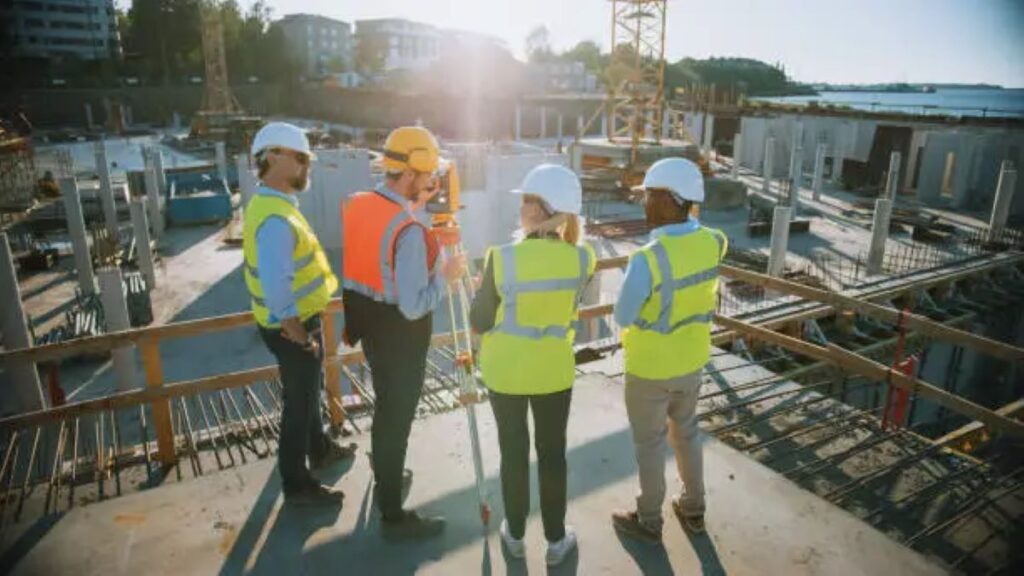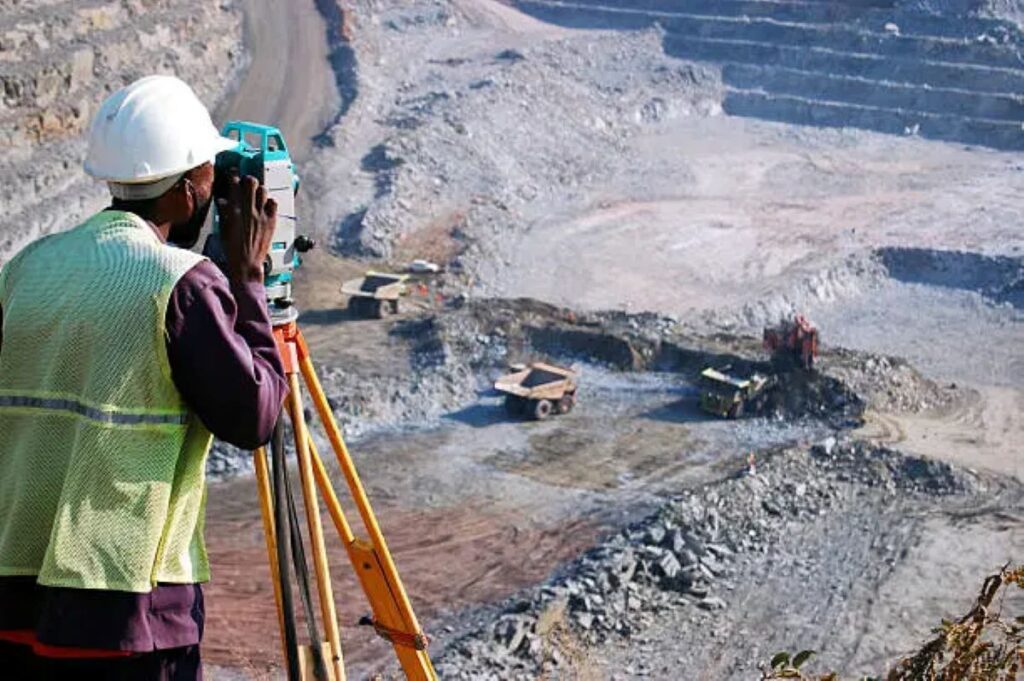Surveyor engineer expertise is essential in modern construction projects. They play a crucial role in ensuring accuracy, safety, and successful project completion. These skilled professionals use their technical knowledge and advanced methods to transform undeveloped land into well-designed spaces ready for construction.
Surveyor engineers have a wide range of responsibilities, including:
- Site Assessment and Analysis: Using advanced equipment to conduct detailed evaluations of construction sites
- Data Collection: Gathering precise measurements and geographical information
- Documentation: Creating comprehensive reports and technical drawings
- Regulatory Compliance: Ensuring adherence to local building codes and regulations
- Project Coordination: Collaborating with architects, contractors, and other stakeholders
As construction projects become more complex, the role of surveyor engineers has become even more important. Their work provides the necessary information for making informed decisions throughout the entire construction process, from initial planning to final inspection.
Surveyor engineers are responsible for identifying potential construction errors early on, which helps prevent expensive mistakes and delays. Their expertise goes beyond basic measurements to include assessing environmental impacts, mapping utility lines, and ensuring structural integrity through precise spatial analysis.
The value of surveyor engineers lies in their ability to combine traditional surveying techniques with modern technology. This allows them to provide accurate and reliable data that guides construction projects towards successful completion.
1. Role of Surveyor Engineers in Construction Projects
Surveyor engineers are essential technical experts who provide accurate geographical information during construction projects. Their roles cover several important areas:
Site Survey Implementation
- Use of advanced GPS systems and total stations for precise measurements
- Use of 3D laser scanning technology for detailed terrain mapping
- Gathering topographical data to identify potential construction challenges
- Evaluating existing structures and their effect on new developments
Documentation and Analysis
- Creating detailed site maps with elevation contours
- Developing comprehensive survey reports highlighting critical findings
- Generating digital terrain models for project planning
- Documenting underground utilities and potential hazards
Technical Collaboration
- Working directly with civil engineers on design specifications
- Providing precise data for architectural planning
- Assisting construction teams during layout and positioning
- Regularly consulting with project managers on site conditions
The role requires careful attention to detail in setting project boundaries and ensuring spatial accuracy. Surveyor engineers visit the site regularly to check construction progress and confirm that it matches the original plans. Their expertise is invaluable in spotting potential problems before they affect construction schedules or budgets.
Modern surveying methods use advanced technology like drone mapping and Building Information Modelling (BIM) to improve accuracy and efficiency. These tools allow surveyor engineers to provide real-time data updates and maintain precise documentation throughout the project.
2. Qualifications and Skills Required for Surveyor Engineers
A successful career as a surveyor engineer demands specific educational qualifications and a diverse skill set. The minimum educational requirement includes a bachelor’s degree in surveying, geomatics, or civil engineering from an accredited institution.
Professional Requirements
- State licensure through the Board of Surveying and Spatial Information (BOSSI)
- Registration with professional bodies such as the Institution of Surveyors
- Completion of supervised practical training
- Regular professional development to maintain certification
Technical Proficiencies
- Mastery of CAD software and geospatial technologies
- Proficiency in GPS and GIS systems
- Understanding of construction methodologies
- Knowledge of legal principles related to land boundaries
Essential Traits
- Precision and attention to detail
- Strong mathematical and analytical abilities
- Physical stamina for fieldwork
- Problem-solving capabilities
- Project management skills
Specialised Knowledge Areas
- Land development regulations
- Environmental protection guidelines
- Construction safety standards
- Local planning codes and regulations
The combination of formal education, technical expertise, and practical experience creates competent surveyor engineers capable of delivering accurate, reliable services across various construction projects.

3. Environmental Monitoring and Compliance in Construction Projects
Surveyor engineers play a crucial role in environmental protection during construction projects through systematic monitoring and compliance enforcement. Their expertise ensures projects meet strict environmental standards while maintaining construction efficiency.
Key Environmental Monitoring Responsibilities:
- Conducting regular erosion assessments
- Tracking sediment control measures
- Monitoring groundwater levels
- Documenting vegetation changes
- Recording air quality measurements
- Assessing noise pollution levels
Environmental compliance requires precise documentation and reporting. Surveyor engineers utilise advanced monitoring equipment to collect accurate data for environmental impact assessments. This data helps identify potential risks and implement appropriate mitigation strategies.
Safety Standards and Regulatory Compliance:
- Implementation of workplace health and safety protocols
- Adherence to local council regulations
- Compliance with EPA guidelines
- Documentation of safety procedures
- Regular site safety audits
- Emergency response planning
The integration of digital monitoring systems enables real-time tracking of environmental changes. These systems alert project managers to potential issues before they escalate into significant problems. Surveyor engineers interpret this data to recommend corrective actions and maintain compliance throughout the construction process.
Risk Management Protocols:
- Site-specific environmental management plans
- Regular compliance audits
- Documentation of corrective actions
- Stakeholder communication strategies
- Environmental incident reporting
- Continuous improvement processes
Professional surveyor engineers work closely with environmental specialists to develop comprehensive monitoring strategies. This collaboration ensures construction projects maintain environmental integrity while meeting project timelines and budgetary requirements.
A significant part of these strategies involves the creation of a Stormwater Pollution Prevention Plan (SWPPP), which is essential for managing stormwater runoff during construction activities.
4. Recent Projects and Client Feedback on Surveyor Engineer Services in NSW Markets
Surveyor engineers in NSW markets have shown outstanding skills in various construction projects. The telecommunications sector has seen significant contributions through collaborations with industry leaders:
- CI International: Comprehensive site surveys and utility mapping
- City of Sydney Council: Infrastructure development and planning
- Telstra & NBN: Network expansion and underground utility location
One notable achievement is working together with School Infrastructure NSW (SINSW) on important state government initiatives. These projects demonstrate the flexibility and technical expertise of surveyor engineer services in different sectors. Click here to get more about Construction Surveyors: Ensuring Accuracy in Building Projects.
Client Testimonials Highlight Consistent Service Excellence:
“The team’s responsiveness and attention to detail exceeded our expectations” – Major Infrastructure Client
Key Areas of Client Satisfaction:
- Professional expertise and technical accuracy
- Competitive pricing structure
- Quick response times
- Indigenous procurement solutions
- Comprehensive end-to-end service delivery
The success of these projects comes from:
- Advanced surveying methodologies
- Strict quality control measures
- Integration of innovative technologies
- Cultural sensitivity in project execution
Recent market analysis shows an increasing demand for surveyor engineer services in NSW, especially in subsurface utility location and infrastructure development. The combination of technical excellence and client-focused approach continues to drive successful project outcomes across the region.

Conclusion
The essential skills of surveyor engineers are crucial for the success of construction projects. Their accuracy in evaluating sites, technical expertise, and dedication to following regulations lay the groundwork for safe, efficient, and environmentally-friendly developments. By using advanced surveying technologies and having a strong understanding of environmental factors, surveyor engineers contribute to construction excellence from the beginning stages of planning all the way to project completion. As modern construction becomes more complex, the specialised knowledge of surveyor engineers is becoming increasingly important for project success. Their role is constantly evolving, adapting to new challenges while upholding the highest standards of precision and professionalism in the construction industry.
